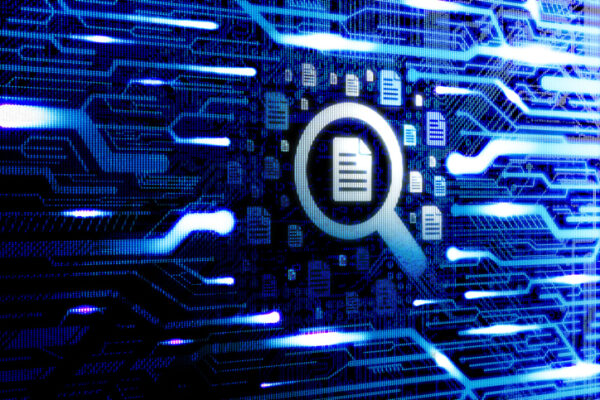
Over the last 15 years serving the medical transcription industry, transcription technology has made a major impact on health care services. And the data agrees. By 2030 the medical transcription market is expected to reach $117.1 billion, which speaks to the healthcare industry’s need for the support transcription provides.
Though many are turning to AI for affordable transcripts, AI carries dangerous risks. AI has made progress in the last few years, but human transcriptionists are necessary in healthcare settings. Transcripts from AI and human transcriptionist may seem the same at first, but the reality is that the similarities are superficial at best. AI transcription efforts are not accurate enough and don’t have contextual understanding, which can slow down workflows. Plus, the majority of AI services can’t offer the expertise and confidentiality that human experts provide.
Unmatched accuracy in medical contexts
In a study of over 136,000 patients, 1 in 5 reported finding a mistake in their records with 40% describing the mistake as “serious.” Needless to say, in healthcare, precision is critical, as a single misinterpreted word or phrase can have serious consequences for patient care.
Experienced transcriptionists understand medical terminology and nuances that might confuse an AI system. Humans understand context, which helps them distinguish between similar-sounding — yet different — terms like “hyper” and “hypo.” These prefixes have opposite meanings but might sound similar to a robot reviewing the same audio recordings.
Human transcriptionists can also interpret accents, manage crosstalk in multi-speaker scenarios, and clarify ambiguities — necessary skills for accurately transcribing patient-doctor interactions, medical conferences, and otherwise important discussions.
And human transcriptionists excel in capturing the subtleties of non-verbal communication as well, particularly when assessing video footage, noting changes in tone, pauses, gestures, or any other physical actions that may be clinically relevant. A patient’s hesitation when describing symptoms or a doctor’s emphasis on certain instructions can be valuable details — but they’re details that AI will often miss.
Enhancing workflow and reducing physician burnout
In 2023, 48% of physicians reported experiencing burnout. This statistic highlights one reason why healthcare providers need solutions that ease administrative burdens.
High-quality transcription services play an important role in making workflows more efficient. Fast, accurate transcripts enable healthcare providers to focus more on patient care and less on paperwork. The ability to deliver rapid turnaround times also means that urgent information is available when it’s needed most. Moreover, these transcriptions are able to integrate with electronic health record (EHR) systems, reducing the time physicians spend directly interacting with cumbersome EHR interfaces.
Fast, accurate transcription services can drastically cut down the administrative work of doctors, surgeons, and nurses, allowing them more time with patients and less time interfacing with the EHR. AI systems often require extensive proofreading and correction. Well-executed, human-generated transcripts are usually ready immediately. This efficiency saves time and helps reduce healthcare professionals’ stress and burnout.
Another advantage of human transcriptionists is their ability to adapt to different healthcare specialties and their unique terminologies. From oncology to pediatrics, each field has its own jargon and abbreviations. Experienced transcriptionists can be trained on these, streamlining the workflow for healthcare professionals and ensuring that transcripts are accurately tailored to the specific needs of different medical departments.
Ensuring patient confidentiality and HIPAA compliance
In the healthcare sector, patient confidentiality is a requirement under HIPAA. That’s why it’s important to understand that human transcriptionists offer a level of discretion and security that AI systems often can’t guarantee.
All qualified professionals working in the healthcare sector must be thoroughly trained in HIPAA compliance, including transcriptionists. And transcription systems themselves should be designed with security at their core, restricting access to sensitive information to ensure that all data is made available only to authorized personnel.
Ideally, recordings and transcripts should be restricted to the original uploader and only temporarily available to the assigned transcriptionist during the transcription process. Failure to restrict access creates a risky scenario where transcriptionists have unfettered access to a significant amount of sensitive, private patient information, increasing the likelihood of data leaks.
And human transcriptionists can also serve as a layer of protection against potential data breaches. Unlike AI systems, which may store or process data in ways that could compromise security, trained professionals can actively identify and flag potential confidentiality issues. Consider a scenario where a healthcare provider accidentally mentions identifying information that shouldn’t be in the record. A human transcriptionist is capable of recognizing this and could, for example, redact the information or alert the relevant parties.
The irreplaceable value of human expertise
While AI continues to advance, the healthcare industry requires a level of accuracy, understanding, and confidentiality that only well-trained human transcriptionists can consistently provide. The human touch supports healthcare providers, ensuring they have access to precise, timely, and secure transcription services.
By choosing skilled human transcriptionists, healthcare organizations can improve their workflow efficiency and ultimately enhance the quality of patient care. Technology may be omnipresent, but that means it’s more important than ever to recognize the areas where human judgment remains essential.
Photo: Filograph, Getty Images
Ben Walker is the founder and CEO of Ditto Transcripts, the leading global provider of transcription services to the healthcare, legal, law enforcement, academic, financial, and general business industries. Born and raised in Omaha, Nebraska, Ben attended Creighton Prep High School in Omaha and Colorado State University in Fort Collins, Colorado, where he earned his degree in Economics. After working as a loan officer for almost eight years, Ben entered the healthcare industry, co-founding a medical transcription company with three others. After recognizing the need for diversification in the face of significant changes in the healthcare industry due to adopting EHR/EMR, Ben founded Transcription Outsourcing. This new transcription company would serve various industries beyond healthcare. In July 2022, Ben rebranded the company to Ditto Transcripts to better convey the company's story and human approach to transcription services.
This post appears through the MedCity Influencers program. Anyone can publish their perspective on business and innovation in healthcare on MedCity News through MedCity Influencers. Click here to find out how.











